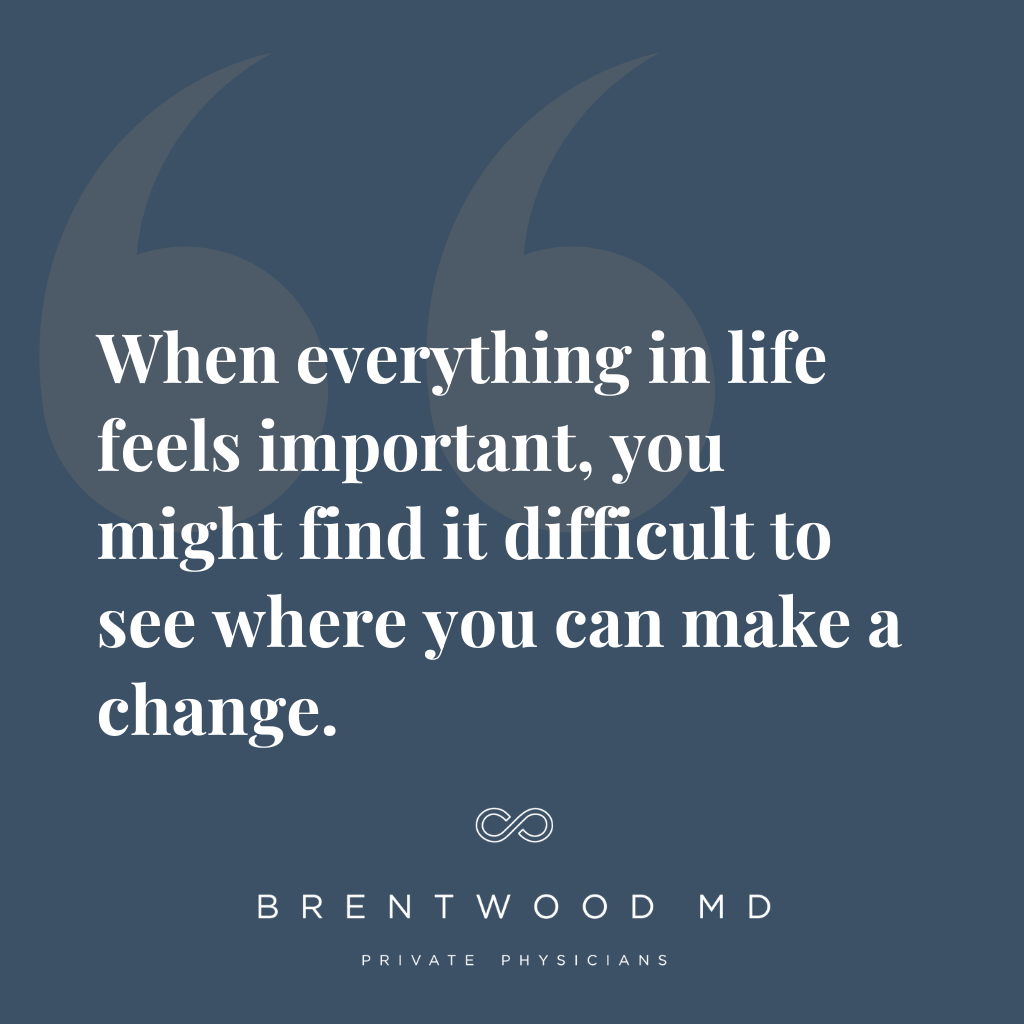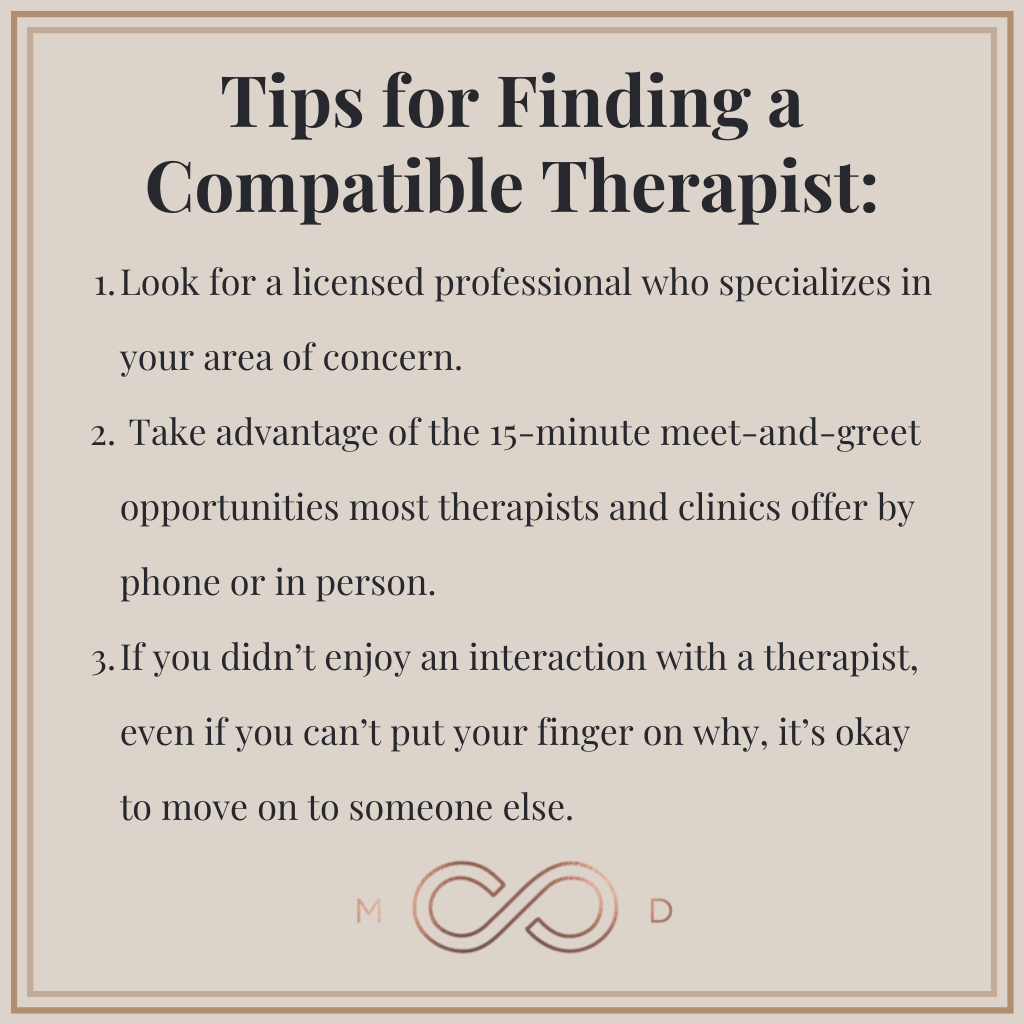Download file | Play in new window | |
Anxiety. Busyness. Expectations. Modern life gets pretty overwhelming at times, and many adults — especially high-achieving individuals — put their mental health on hold while they power through the rest.
As a concierge physician, I see firsthand how mental health impacts overall well-being. That’s why I was thrilled to sit down with Dr. Lauren King, licensed psychologist and psych director at Southeast Psych Nashville, located right here in Brentwood, Tennessee.
Dr. King’s expert insights on subjects from perfectionism to parenting offer practical perspectives for navigating some of life’s most difficult yet common challenges. Let’s dive in.
How Therapy Helps: Mapping Your Mental Landscape
Despite more openness toward mental health discussions today generally, applying that same openness for yourself isn’t always as easy. To assist your personal considerations with regard to therapy — and to provide a base understanding of therapy overall — let’s look at what therapy actually does and how it helps.
Think of your mind as a deep, beautiful canyon. Inside, you find gentle slopes and striking colors, but also sharp edges and occasional rapids, all shaped by years of experiences. Therapy helps you explore those contours, shedding light on what’s shaped you and how that influences your present reactions.
For instance, maybe you become incredibly anxious every Sunday night without knowing why. Therapy can help you map logic onto that emotion by identifying the source, making sense of it, and validating your experience. This understanding provides a sense of control and relief, and the intensity of that emotional response often diminishes.
One of the ways we cope as humans is to put words to what we feel. Maybe you feel generally bad, but you aren’t sure why. Therapy helps you identify what you’re feeling, even if you couldn’t name it before, and then explore its root cause. Dr. King notes that sadness is really about loss, anger about injustice, and anxiety about threat. If you’re sad, what do you feel you’ve lost? If you’re anxious, what part of you is feeling threatened?
Finally, therapy helps you reframe unhelpful thought patterns. For instance, past experiences may have caused you to develop some erroneous core beliefs that sabotage your success or happiness today. Or, they may have instilled unproductive methods of responding to various circumstances. Therapy can help you spot those pitfalls in your mental canyon and develop new ways to approach and react to situations.
Dr. King herself appreciates the help she received from a colleague as they were opening their practice. While she was sinking under detail after stressful detail — like lost office furniture and malfunctioning phones — he shared, “You’re going to burn out so fast if you react to every problem this way. You have to see every problem like an adventure.”
This simple shift in perspective transformed her approach from dreading challenges to expecting and even enjoying tackling them. The innate outside perspective of therapy offers these kinds of simple shifts in thinking, often with profound effects.
Health Anxiety: When Worry Takes the Wheel
Everyone gets anxious about their health from time to time, but for some, it becomes consuming. Health anxiety often involves a cycle of worry and checking behaviors. This might include frequent doctor calls or visits and/or obsessive online research — actions that actually increase anxiety over time.
If you’ve ever found yourself in this cycle, you know how exhausting it can be. Even a positive outcome or encouraging test result doesn’t provide relief.
The key to addressing health anxiety, according to Dr. King, is to learn to tolerate doubt. We simply can’t know everything that’s happening in our bodies at every time. Part of overcoming anxiety is accepting that uncertainty.
If you find yourself unable to address your health anxiety on your own, you’re not alone. This is where therapy can be very useful. A therapist can help you identify the core issue behind your anxiety, such as a fear of death or need for control, and guide you in addressing it.
Two powerful tools can help those struggling with health anxiety:
Mindfulness
Mindfulness simply means paying attention to the present moment without judgment. Instead of spiraling into “what-ifs,” mindfulness teaches you to focus on what’s happening right now.
Mindfulness comes with a whole host of benefits, including improved focus, decreased depression, and reduced blood pressure. Related to health anxiety, mindfulness prevents your thoughts from time-traveling to the past or future, anchoring them to the present. Even one minute of mindfulness a day is beneficial; a whole host of online apps are now available to lead you through various mindfulness practices.
Radical Acceptance
Radical acceptance means accepting your current reality without wishing it were different. This doesn’t mean you like your circumstances, but that you consciously accept the hand you’ve been dealt. Then, in light of that acceptance, you get to decide how you’re going to live your life in a way that’s meaningful to you.
During COVID quarantine, Dr. King encouraged teens who felt isolated to take this approach. They were alone and scared, but since they couldn’t change their circumstances, she suggested using the situation to accomplish something they’d be proud to tell their grandchildren. “Is this going to be the time you learn guitar? Is this going to be the time you write your own book?”
Both mindfulness and radical acceptance might sound simple, but they’re powerful tools for managing anxiety. Start by practicing them in calm moments, so when anxiety strikes, you’re better equipped to handle it — somewhat like a fire drill for your mind.
Finding Balance in a High-Pressure World
At Brentwood MD, we work with many young professionals on a success trajectory in their careers. They’re driven, motivated — and often pushing themselves to the brink of burnout.
It’s easy to neglect self-care in pursuit of success. At work, you devote all your energy toward the next project, the next meeting, the next deal. At home, you focus on the kids and setting them up for success as much as possible. Your health languishes on the back burner.
The problem? Your physical health isn’t the only thing that suffers. Chronic stress also worsens professional performance and impacts your children — even if they never hear you talk about it.
When everything in life feels important, you might find it difficult to see where you can make a change. The good news is that you don’t need to blow up your life to reduce stress. Instead, start with one step:
- List out your must-dos.
- Categorize them all as either life-giving or life-sucking.
- Remove one life-sucking item from your list.
Remember, too, that perfectionism increases stress around affected tasks. If you expect perfection at work, then that project or meeting feels monumental. But if you approach it like any other chore — like raking the leaves, for example — you reduce the emotional pressure on yourself to operate in a constant state of peak performance.
Parenting Perfection: When Good Enough Is Good Enough
Everywhere we turn, from schools to books to Instagram, there’s advice on how to raise the perfect child. It’s easy to feel overwhelmed by the pressure to do everything right. Dr. King reassures parents that you don’t need to be perfect to raise healthy, happy children.
Instead, psychology offers us the concept of the “good enough” mother. Based on the observation of thousands of babies and their mothers, the theory suggests that children actually benefit from imperfect parenting (this doesn’t encompass major breaches like neglect or abuse, of course). So, while we do our best for our kids, we also accept that we won’t be perfect.
Other key parenting insights from Dr. King include:
- Aim for a balance of warmth and firmness. Clear boundaries are important for healthy development, but you can maintain them within a loving relationship.
- Avoid overprotecting or rescuing your children from every challenge. Independence and resilience are crucial life skills.
- Forgive yourself for mistakes. Negative self-talk around your parenting produces even poorer parenting outcomes. Accept that you’re not perfect, forgive yourself, and seek forgiveness from your child when necessary. Then, move on without guilt.
Cultivating a Healthy Relationship With Food
Whether it’s children or adults, body image and our relationship with food can be complicated subjects. We’re all swimming in the same “dirty water of diet culture,” as Dr. King puts it, where the media sends conflicting messages about how we should look and what we should eat.
Ads for juicy fast food burgers follow ads with underweight models who’ve been airbrushed to death. Diets create anxiety around food with restrictive doctrines. Even the current obsession with “clean eating” instills despair, making us feel like we’ll never find the “healthy” food we need.
According to Dr. King, eating just shouldn’t be this complicated. She recommends, “Eat when you’re hungry, stop when you’re full, and move your body.” That’s it.
Of course, those with difficult experiences in their younger years may have used food as a coping mechanism or developed a more emotionally loaded relationship with food. In these cases, a more therapeutic approach is helpful.
To help your children develop a healthy relationship with food, Dr. King suggests:
- Keep it simple: Over-educating children about food can backfire, creating unhealthy attitudes. Focus on eating the major food groups, and leave the rest out.
- Teach body diversity: Help your kids understand that different bodies look different, and that’s okay. Dog breeds offer an easy example here. We don’t expect a Labrador to look like a wiener dog or a pug to look like a Rottweiler. Body acceptance can lead to greater food freedom and avert unhealthy behaviors.
- Don’t outlaw: Seeing foods labeled as off-limits or “bad” can lead children into compulsive eating behaviors. Allowing treats in moderation offers a more balanced path.
Spotting and Addressing Eating Disorders in Kids
If you’re worried your child has developed an unhealthy relationship with food, perhaps even an eating disorder, what should you do?
Eating disorders don’t resolve on their own, and the best treatment outcomes are associated with early intervention. So if you suspect a problem, don’t wait to address it.
Dr. King recommends first approaching your child lovingly and with evidence. For example:
I noticed you haven’t eaten dinner with us the last three nights. Or, I heard you vomiting outside the bathroom after dinner the last three nights. I love you, and I’m really worried about you. Let’s go get some help.
Then, seek out a medical doctor or therapist who specializes in eating disorders. If the problem does turn out to be an eating disorder, then treatment will take a team approach — a registered dietitian, a medical doctor, and a therapist who specializes in eating disorders — to address all aspects of the disorder.
Final Thoughts: Taking Charge of Your Mental Health
Therapy isn’t about being told what to do or how to live — it’s about learning to understand your internal landscape, reframing challenges, and developing tools for a healthier, more balanced life. Whether you’re dealing with health anxiety, chronic stress, or parenting perfectionism, therapy can help you find peace in the present and confidence in the future.
If you’re considering therapy, finding the right fit is crucial. Dr. King emphasized that a good client-therapist relationship is the most important factor in successful treatment, regardless of the type of therapy.
Tips for finding a compatible therapist:
- Look for a licensed professional who specializes in your area of concern.
- Take advantage of the 15-minute meet-and-greet opportunities most therapists and clinics offer by phone or in person. Use the time to get a sense of different therapists’ personalities and find one you connect with and feel comfortable with.
- Trust your instincts. If you didn’t enjoy an interaction with a therapist, even if you can’t put your finger on why, it’s okay to move on to someone else.
Remember, seeking help is a sign of strength, not weakness. Regardless of what you’re dealing with, the right therapist can be an invaluable ally on your journey to better health and wellness. Don’t be afraid to take the first step.

Dr. Wright joined Brentwood MD in 2022 as the model allows him to spend more time connecting with patients and build a foundation of exceptional care. He is a Nashville native and completed his family medicine residency at the University of Tennessee Health Science Center, where he also served as Chief Resident. He believes that your health deserves a prominent position on your priority list, and would be honored to serve you and your family.









